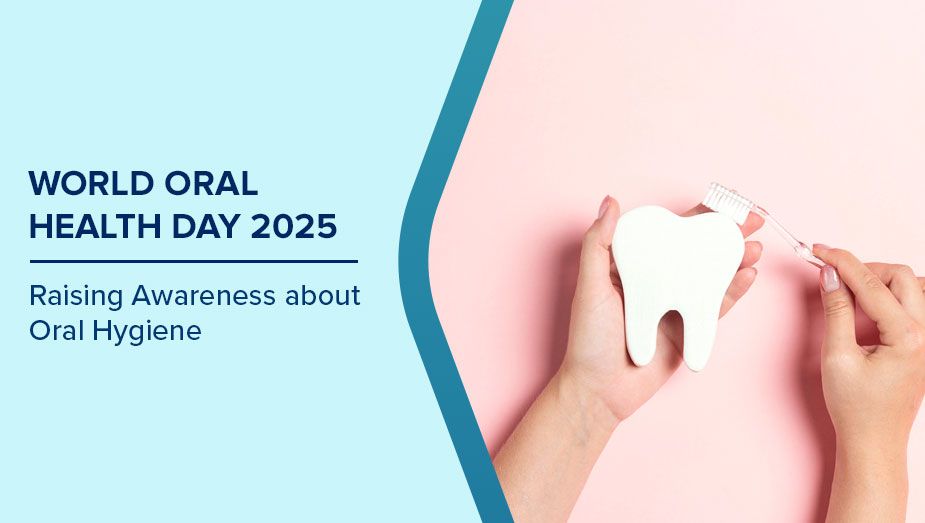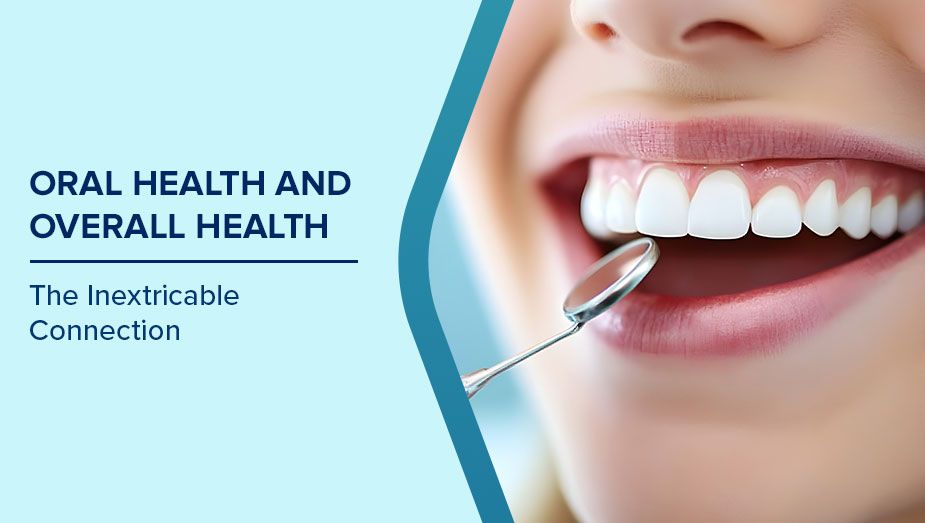Globally, nearly 3.5 billion people suffer from oral diseases, with untreated tooth decay being the most common condition. Yet, oral health often takes a back seat to other aspects of well-being. Many do not realise that poor hygiene can lead to serious complications, including heart disease, diabetes, and respiratory infections.
World Oral Health Day, observed on 20 March each year, serves as a reminder of the importance of maintaining healthy teeth and gums. The 2025 campaign encourages greater awareness and action, making small daily habits a priority for good oral health.
This blog explores the significance of oral health, debunks common myths, and shares practical tips to maintain a healthy smile.
History and Significance of World Oral Health Day
World Oral Health Day was established by the FDI World Dental Federation to highlight the impact of oral health on overall well-being and encourage preventive care.
The date, 20 March, was chosen to reflect key oral health indicators—healthy adults should have 20 natural teeth at the end of their life, and children should have 20 baby teeth. The campaign has grown over the years, with dental associations, healthcare organisations, and communities worldwide promoting oral hygiene through educational initiatives, free dental check-ups, and public awareness drives.
Each year, the event follows a specific theme that focuses on different aspects of oral health. The 2025 theme, “A Happy Mouth is… A Happy Mind,” highlights the connection between oral health and mental well-being. Poor oral hygiene can lead to conditions like cavities, gum disease, and tooth loss, which may affect confidence, social interactions, and overall mental health. Untreated dental issues can also contribute to stress, anxiety, and self-consciousness, impacting a person’s quality of life.
Why is Oral Health Important?
Oral health plays a vital role in overall well-being, affecting not just the mouth but also general health. Neglecting oral hygiene can lead to various dental issues that may cause discomfort and impact daily life.
- Prevents Dental Diseases: Brushing, flossing, and regular dental check-ups help prevent common problems like cavities, gum disease, and bad breath. Untreated dental issues can progress, leading to pain, infection, and even tooth loss.
- Reduces the Risk of Systemic Health Problems: Poor oral hygiene has been linked to serious health conditions, including heart disease, diabetes, and respiratory infections. Bacteria from the mouth can enter the bloodstream, increasing the risk of inflammation and other complications.
- Supports Mental and Social Well-being: Oral health affects confidence, speech, and social interactions. Dental problems such as missing or discoloured teeth may lead to self-consciousness and reluctance to smile, impacting mental well-being and quality of life.
- Improves Digestion and Nutrition: Healthy teeth and gums are essential for proper chewing, which aids digestion and nutrient absorption. Dental issues can make it difficult to eat a balanced diet, leading to nutritional deficiencies.
- Helps Maintain Good Oral Health: Good oral hygiene habits established early can prevent severe dental issues later in life. Regular dental care reduces the need for complex treatments, saving time, money, and discomfort in the future.
Oral Hygiene Practices for Strong Teeth and Gums
Maintaining good oral hygiene helps prevent cavities, gum disease, and other dental problems. Simple daily habits can keep teeth and gums strong, reducing the risk of long-term complications.
- Brush Twice a Day: Use a fluoride toothpaste and a soft-bristled toothbrush to clean teeth for at least two minutes. Brushing before bed is especially important to remove plaque and food particles.
- Floss Daily: Flossing removes food debris and plaque from between teeth, where a toothbrush cannot reach. This helps prevent gum disease and cavities.
- Use Mouthwash: An antimicrobial or fluoride mouthwash can help reduce bacteria, strengthen enamel, and freshen breath. It should be used as a supplement, not a replacement, for brushing and flossing.
- Limit Sugary and Acidic Foods: Excess sugar and acidic foods weaken enamel and contribute to tooth decay. Drinking water after consuming such foods can help reduce their impact.
- Stay Hydrated: Drinking plenty of water helps wash away food particles and bacteria, keeping the mouth clean and preventing dry mouth, which can increase the risk of cavities.
- Visit the Dentist Regularly: Routine check-ups and professional cleanings help detect and address dental issues early, preventing more serious problems in the future.
Consistently following these practices helps maintain strong teeth and healthy gums, reducing the risk of dental problems over time.


